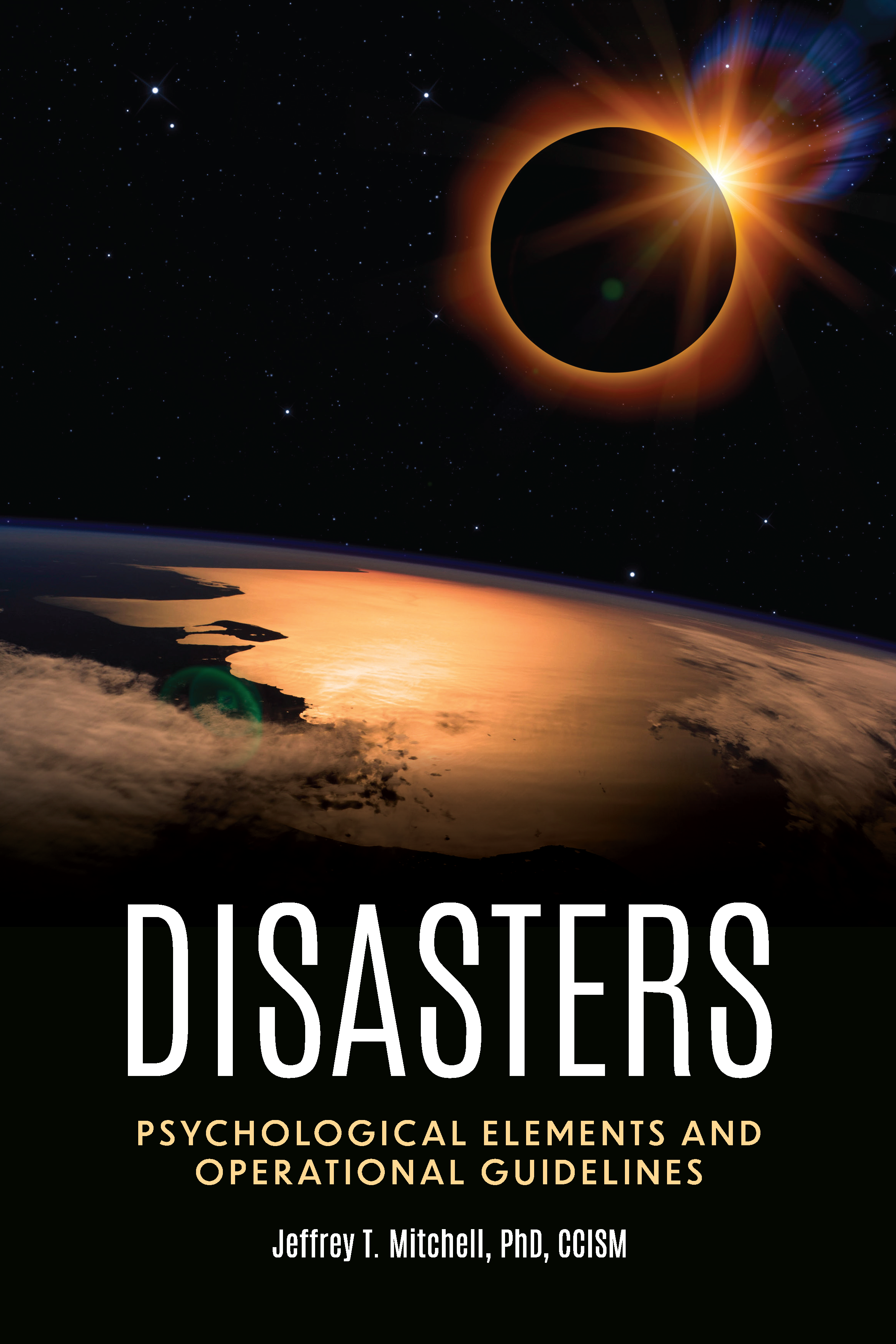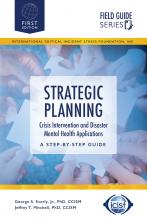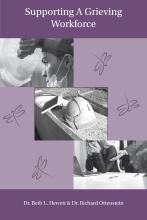Disasters
Disasters
By: Jeffrey T. Mitchell, PhD, CCISM
The impacts of disasters can be soul crushing. Grief struck survivors are confused as to how to work their way through the community destruction and the deaths and injuries to people they care about. Disasters - Psychological Elements and Operational Guidelines was written to help disaster response and crisis intervention personnel to provide emotional support to distraught people in the aftermath of a community disaster.
Title information
No community is truly prepared for a disaster. Some may be more ready than others, but few can claim that they are, in fact, ready for any large-scale incident that might occur. That statement applies to a community’s emergency management and emergency services personnel, the military, the Red Cross, and other disaster responders including mental health professionals, the clergy, churches, volunteer organizations, and Critical Incident Stress Management (CISM) teams.
Disasters are different because of their usually unexpected speed of impact, their magnitude and destructiveness, and their widespread psychological effects on the people who live and work in areas struck by an overwhelming tragedy.
Disasters - Psychological Elements and Operational Guidelines helps to fill in the gaps in training and experiences for people who would like to be more effective in supporting individuals and communities struggling with survival and recovery from the crushing impact of disasters.
Jeffrey T. Mitchell, PhD, CCISM
Jeffrey T. Mitchell, PhD, CCISM is Clinical Professor of Emergency Health Services at the University of Maryland in Baltimore County, Maryland. He is a member of the Graduate Faculty of the University of Maryland. He is a co-founder and President Emeritus of the International Critical Incident Stress Foundation. He earned his Ph.D. in Human Development from the University of Maryland. He served for six years as a regional coordinator of Emergency Medical Services for the Maryland Institute for Emergency Medical Services Systems. He was responsible for the development of the Emergency Medical Services System in five southern Maryland counties. After serving as volunteer paramedic / firefighter for ten years, he developed a comprehensive, integrated, systematic, and multi-component crisis intervention program called “Critical Incident Stress Management.” Today, that program reduces traumatic stress in many countries.
He has authored more than 275 articles and 19 books in the stress and crisis intervention fields. He serves as an adjunct faculty member of the Emergency Management Institute of the Federal Emergency Management Agency. He is a faculty member of Florida Institute of Technology and teaches a course on the psychology of disasters. Dr. Mitchell is a faculty member in the school of education, Johns Hopkins University. He is a reviewer for the Journal of the American Medical Association (JAMA), Disaster Medicine, the Journal of Emergency Medical Services (JEMS) and the International Journal of Emergency Mental Health. He received the Austrian Red Cross Bronze Medal for his work in Crisis Intervention in the aftermath of the Kaprum, Austria train tunnel fire. The Association of Traumatic Stress Specialists approved Dr. Mitchell as a Certified Trauma Specialist.
The United Nations appointed him to the United Nations Department of Safety and Security Working Group on Stress. He has consulted on stress, crisis, and trauma topics in 28 nations and in every one of the 50 United States.



